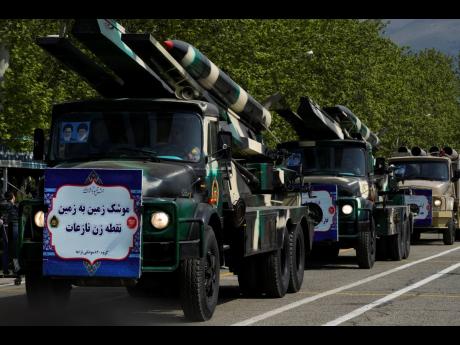Was Iran not expected to retaliate?
THE EDITOR, Madam:
I am definitely no fan of Iran’s oppressive rulers, but were they really expected to not retaliate against Israel’s bombing/destruction of the Iranian Embassy in Damascus that killed, among others, two senior Iranian generals?
Is there really that great of a misplaced sense of Israeli –and, by extension, American – entitlement? Regardless, judging from recent history, additional Western sanctions will likely be slapped on Iran for retaliating.
In fact, there has been a predictable proclivity of the US and UK, in particular, for sanctioning Iran and/or its officials ever since the Iranian Revolution.
The revolution’s expulsion of major Western nations was largely due to US corporate interests further exploiting Iran’s plentiful fossil fuel resources. Such an expulsion would’ve been a big profit-losing lesson learnt by the foreign oil corporation heads, which they– by way of accessing domestic political, thus military muscle – would not willingly allow to happen to them again.
Indeed, the 2003-11 US invasion of Iraq and its oilfields is another example of this insatiable corporate greed mentality.
It would be understandable if those corporate fossil-fuel interests would like Iran’s government to fall, thus enabling Big Oil to access Iran’s rich oilfields. It may be that if the relevant oil companies’ heads were/are in fact against Iran’s post-revolution government(s), then likely so are their related Western governments and, via news media support, collective national citizenry.
FRANK STERLE JR
White Rock, BC
Canada

